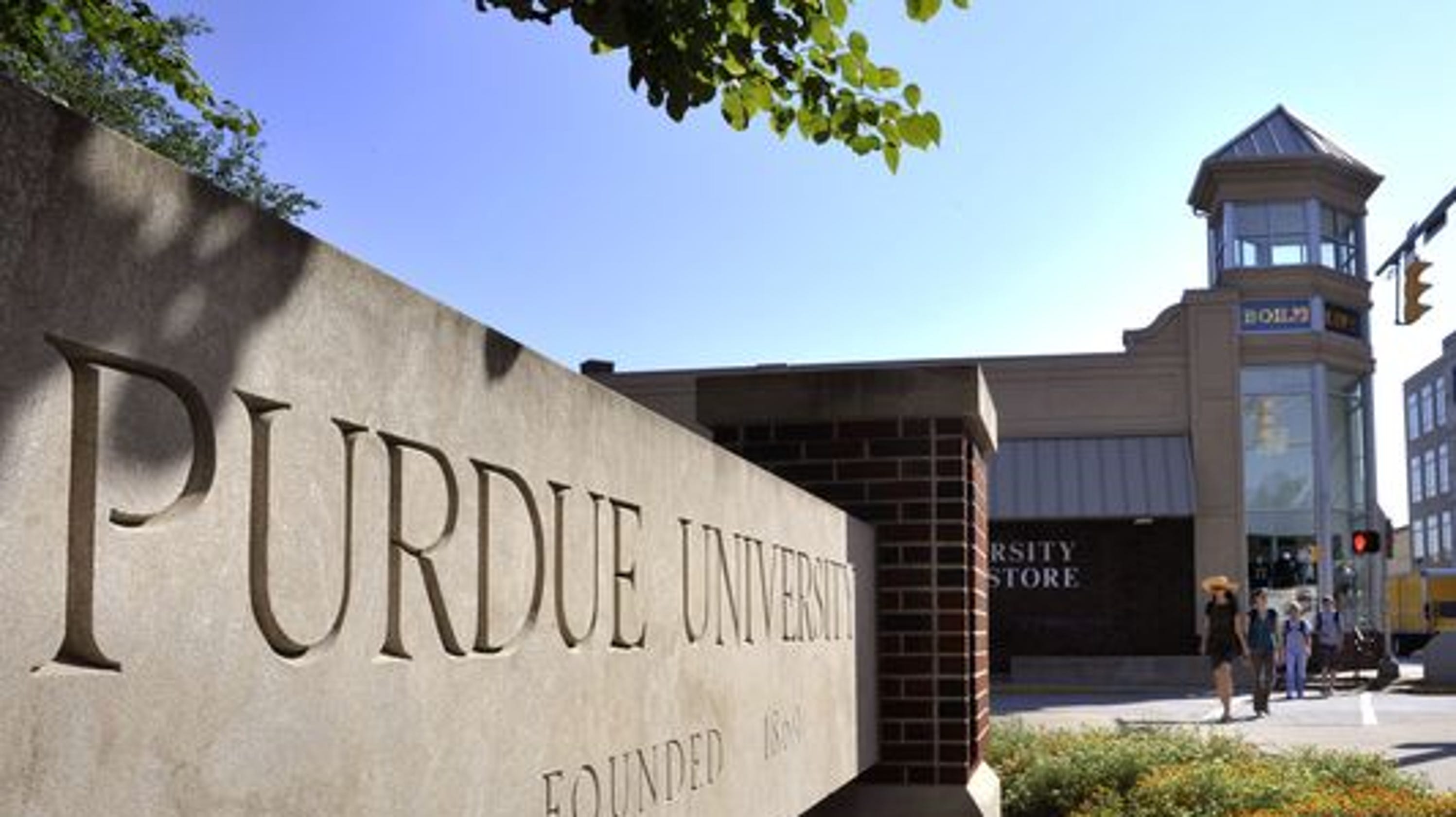The Cox School of Business for Working Professionals

Working professionals are facing a challenging time with the impact of COVID-19 on today’s employment landscape. In our latest installment of the MetroMBA “5 Questions” series, we speak with Jillian Melton, the Director of Admissions for the Working Professional MBA at the Cox School of Business to learn more about their program offerings for working professionals.
How does the SMU Cox School of Business programs differentiate from other offerings in the Graduate Management Education space?
“SMU Cox is a top-ranked business school in Dallas, TX with multiple degree paths for working professionals, whether early in their careers or in senior leadership roles, to earn an MBA without leaving the workforce.
SMU Cox recently launched the NextGen Cox Curriculum anchored in three pillars essential to ensuring students are well-prepared for their future careers: Leadership, Analytics, and Experiential Learning. Students not only gain technical business skills through the rigorous core curriculum, but they also develop highly sought-after leadership and analytical skills through experiential learning projects in which students consult for organizations around the world.
Outside of the classroom, students have full access to the Career Management Center for career coaching and job placement opportunities with hundreds of top hiring companies, in addition to mentorship programs and, for more experienced students, executive coaching. To further deepen business knowledge and leadership skills, students participate in seminars through the Cox School’s Business Leadership Center or one of our 25 student-run clubs and organizations.
The Cox School offers four MBA programs for working professionals:
1. The Professional MBA program offers flexible options for working professionals to earn their MBA with a concentration in one of 11 areas. With over 170 electives in areas such as finance, real estate, marketing, business analytics, and operations, students are able to determine which courses to focus on to best accelerate their career.

2. The Online MBA program offers the same rigor as our on-campus MBA programs, with the flexibility for students to attend classes from wherever they are. Live class sessions are held weekly, and average class size is between 15-20 students to ensure robust discussions and teamwork. Students also participate in two global 4-day immersions to gain hands-on experience during a real-time consulting engagement.
3. The MBA Direct program is designed for early career professionals with less than three years of work experience. This part-time program begins online and offers students the option of taking electives on-campus or online later in the program.
4. The Executive MBA is designed for experienced professionals to build on previous management experience through collaboration with peers in order to hone management expertise across industries and disciplines. Classes are held every other weekend, and the program includes a 10-day global consulting trip.
What is the typical profile of a student who would benefit most from the Cox School of Business MBA programs and what characteristics are your admissions team looking for?
SMU Cox is looking for students who are passionate about growing their knowledge, skills, and careers through an MBA. We are also looking for students who will contribute to the overall SMU Cox community as both students and future alumni. The curriculum is anchored in three pillars: leadership, analytics, and experiential learning. Successful candidates will have demonstrated leadership experience and abilities, are intellectually curious, and are eager to learn through hands-on work solving big, complex, and ambiguous problems. Throughout the admissions process, the SMU Cox Admissions Team wants to get to know applicants to better understand past experiences, but also how an MBA fits into an applicant’s career goals. We take a very personalized approach and fully consider the entire application prior to making an admissions decision.
What types of financial aid are available to students?
SMU Cox automatically reviews all applicants for merit-based scholarship – there are no additional steps applicants need to take in order to be considered. Merit-based scholarship awards range from $1,000 up to $15,000. Additionally, we encourage all applicants to discuss with their employers what tuition assistance programs may exist, whether formal or informal. Finally, all students should apply for financial aid to help cover the cost of tuition. The process is simple and all students, regardless of need, are eligible to apply.
How does the Cox School of Business assist in finding job opportunities and how does your program enhance a student’s profile as a job applicant?

When students join SMU Cox as an MBA student, they immediately have support from the Career Management Center not only as a student but for the rest of their career as an alumnus of the program. Each student has a dedicated Career Coach who works with them during the program on their custom job search and career development plan. Students in the Professional MBA, Online MBA, and MBA Direct programs take the Managing Your Career course which covers topics such as search strategy, resume and cover letter writing, networking, elevator pitch, interview techniques, and salary negotiation. This course is designed for students to be ready to participate in all on-campus recruiting activities. Executive MBA students work with assigned career coaches for executive coaching and a plan tailored to students’ unique career goals and needs.
Additional programming through the Career Management Center includes skills workshops needed for landing a job in specific industries such as consulting, CPG, or investment banking; industry roundtable nights for learning about and networking in different industries; the Associate Board Mentorship program; and career treks to visit top companies in different cities.
Each year, hundreds of companies recruit for MBA hires on campus at SMU Cox, and all students are encouraged to fully utilize these opportunities and resources. Some of the top hiring companies include JP Morgan Chase, PepsiCo, Amazon, American Airlines, PWC, AT&T, CBRE, and EY.
At SMU Cox, the majority of our Working Professional MBA students are looking to make a career change whether that be industry, function, or company. One hundred percent of our students want to grow and accelerate their careers with their MBA, and the Career Management Center is poised to help all of them achieve their goals.
What is one insider tip you can provide prospective applicants about applying to the Cox School of Business?
Get to know the admissions staff! Throughout the process, we want to get to know applicants and also share why SMU Cox is such a fantastic school to study business. Attending events, emailing or calling us, or setting up a 1:1 office hour appointment is a great way to learn more about the Working Professional MBA programs and also showcase interest in the program.
Bonus Questions
Although many schools are providing remote or hybrid learning, we asked Jill about the best locations for students once classes are fully back to campus:
What is one restaurant every student must visit and why?
Bubba’s is an SMU institution serving southern comfort food breakfast, lunch, and dinner in a diner atmosphere. The fried chicken is some of the best in Dallas, but I love the biscuits most!
Where is the best cup of coffee on campus?
Herb’s House Coffee is just off campus and is a must-stop for Working Professional MBA students looking for a great cup of coffee and a good meeting space for small group projects. They even have conference rooms for rent if you need a more structured work space. I recommend the Lavender Latte.
What is the best ‘hidden secret’ on campus?
The Native Texas Park behind the George W. Bush Presidential Center, located on SMU’s campus and within easy walking distance of the Cox School, is a best-kept “hidden secret.” SMU is fortunate to be home to the Bush Presidential Center, including the Presidential Library and Museum. One of the most overlooked parts is the 15-acre urban oasis outside the Center where visitors can walk through native Texas environments, including the much-loved Bluebonnets each spring.
Georgia Tech’s Full-Time MBA Recruiter Answers Our 5 Questions

In our latest installment of the MetroMBA “5 Questions” series, we speak with Amy Hayes, Full-Time MBA Recruiter at the Georgia Tech Scheller College of Business. Hayes talks about what makes an ideal Georgia Tech MBA candidate, what to know before applying, and much more, below.
1.) What Advantages Does a GT Scheller MBA Have Compared to Other Offerings in Georgia?
“What makes Georgia Tech Scheller College of Business stand out is the way our curriculum and experiential learning opportunities explore the intersection of business and technology. Many of our students do come from a technical educational and professional background; however, we have nearly as many who don’t. All students are looking to address gaps, in technology or business acumen or both, to prepare to pivot into a new career or to gain a better framework for decision-making. In other words, our program is approachable no matter your background is. Our aim is to produce MBAs who understand how technology drives innovation in any industry. A general understanding of technology’s power is vital to any role. While many of our students take a broad approach to our flexible curriculum, we offer concentrations in seven functional areas and nine interdisciplinary areas that often draw students into our flagship coursework in Business Analytics, Strategic Sustainability, Marketing, Supply Chain and Innovation.
Additionally, Scheller is located not just in Atlanta, but specifically in Midtown Atlanta’s Technology Square. Our students benefit from an innovative ecosystem comprised of major global corporations, emerging tech companies, and many corporate innovation centers strategically placed to draw from Georgia Tech talent. This location positions students well with opportunities advantageous for networking. Among our extraordinary 12 practicum offerings, students are not only partnered with companies based outside of Atlanta (including Nike, IHG, Bank of America, Samsung, AT&T) but also work with neighboring businesses where there is opportunity to meet face to face regularly with executives of these organizations (including Coca-Cola, Delta Air Lines, The Home Depot, NCR).”
2.) Is There a “Perfect” Kind of Candidate That Fits the School’s MBA Mold?
“Actually, we prefer to look at how a candidate can break the mold. What is it about your experience, your background, your career goals that will bring a diverse perspective to our program? Sure, we aim to bring in students who can be successful in the classroom and who we can successfully serve in terms of career placement, but I feel lucky to get to recruit prospective candidates with different stories and unique individuals to Scheller. Given our small program size of around 160 students, we have a tight-knit, collaborative community that commands intentionality in finding bright candidates with good character, great personalities, open-mindedness, and willingness to help others. I’m certainly held accountable by our current students to uphold our values in the recruiting process, and I wouldn’t have it any other way. I love that they have a vested interest in who they will work and play alongside!”
3.) What Would You Say Students Need to Prioritize the Most Before Applying?
“I think as much as anyone dreads standardized testing, applicants should know that your performance on the GRE or GMAT is the one application area you can impact the most. Transcripts from undergrad are set in stone, and your work experience is what it is. Intentionally preparing for the GRE or GMAT and planning to test multiple times will not only help you achieve better results for admission and funding but might also set you up for better job placement as some industries will evaluate these scores in recruiting. When considering full-time MBA programs, it’s best to approach the testing phase with determination instead of dread.”

4.) What Would You Say Applicants Need to Worry Less About Before Applying?
“My recommendation is to worry less about exact courses you will take and mapping your MBA experience out before you get here. Having some degree of clarity about career goals and how certain classes or experiences within a program will help you get there is great to highlight in essays and interviews, but you should also be open-minded. Curiosity is a very attractive quality when we’re evaluating candidates at Scheller; and, I’m sure many programs would say the same. You’ll receive wonderful advising when you get to our program pertaining to curriculum and career goals. We find our candidates who are flexible and join clubs or take classes in areas they didn’t know they’d be interested in have the best experiences and see the most success in the long run.”
5.) If You Had to Choose One Book for a Potential GT Scheller MBA to Read Before Enrolling, What Would It Be?
“I would recommend Grit: The Power of Passion and Perseverance by Angela Duckworth. It would be beneficial both in applying to business schools and in preparing to start business school as it contends that the best thing to arm yourself with is resilience. The application process is a journey in finding the best fit for you and you might have disappointments and new information coming to you that could shift the course you’ve charted for yourself. Your “dream school” might change. And, your business school journey might bring big challenges early on as you navigate the transition back into the classroom, are tested in your quest for a summer internship, and enter a world in which feedback freely flows from your classmates, career advisors, faculty, and even acquaintances. Your MBA experience will stretch you, but the return on your hard work will come in the ability to receive coaching and the perseverance you’ll carry with you throughout your career.”
MBA Updates – New B-School Offerings Arrive as Some Programs are Put on Hiatus

Business schools are regularly updating their program options. You might not even realize it, but MBA programs are being added, removed, and modified to make way for the new and to get rid of the old.
Moving forward, we at MetroMBA will help you keep track of the latest MBA changes around the world. We’ll update this document continually as we learn the latest news and share it with you.
So, keep checking back to see what’s going on in the business school world.
St. Paul Opus College of Business Suspends Full-Time MBA
The University of St. Thomas Opus College of Business in Minnesota is the latest in an ever-growing line of U.S. business schools transitioning away from full-time MBA offerings.
According to the Minneapolis/St. Paul Business Journal, “only 28 students are currently enrolled the program, which was designed to hold roughly 200, according to university officials. Less than 20 staffers out of the Opus College’s 70 employees will be impacted by the move. School officials said digital capabilities and demographic shifts are the reasons behind the decision.”
With over 1,000 current graduate students enrolled in Opus College, the priority is shifting towards three things, according to Associate Dean Michael Garrison: “specialized programs, accelerated programs, and flexibility.”
Along with the announcement of the end of its full-time MBA, the school is also discontinuing its Masters of Science in Accountancy program. However, analytics courses will continue to be a part of the school’s business offerings.
Johns Hopkins Refines MBA Program
According to a recent profile in the Wall Street Journal, the Johns Hopkins Carey Business School will be revamping its full-time MBA program, starting fall of 2020. Students in the program will begin healthcare-intensive coursework immediately, utilizing the university’s renown healthcare education system to their advantage. Previously, full-time MBA students at Johns Hopkins had optional courses that could be centered around healthcare, available during the second year of the curriculum.
“The new curriculum will include a consulting project where students partner with a company, such as a hospital chain or pharmaceutical maker, to analyze data that can help solve a problem for them. The program also will require students to take a course on artificial intelligence, and M.B.A. candidates will need to learn statistical programs in bootcamp-type courses when they first arrive on campus,” WSJ journalist Patrick Thomas writes.
For more on the upcoming changes, read here.
Purdue Krannert Announces New Online MBA
In January 2020, the Purdue University Krannert School of Management in West Lafayette, Indiana will introduce an all-new two-year Online MBA program.
According to Inside Indiana Business, “Classes will run in seven-week segments and the program will enroll students based on rolling admissions, so students can join periodically during the school year.”

The Purdue University Krannert School of Management.
In a release from Krannert, Dean David Hummels says:
“We believe the Purdue Online MBA is a perfect fit with the strengths of Purdue University. The program has a focus on technology and innovation that will be ideal for students with a STEM background or any student seeking career-changing opportunities with high-tech companies.”
More details on the program are expected to be released in the near future.
Boston University to Introduce Online MBA in 2020
In partnership with edX, an online education platform, the Questrom School of Business at Boston University will formally introduce its own Online MBA program in fall 2020. It will be the first official Online MBA offered by edX, which is currently offering 10 specialized master’s programs.
Applications will officially open on August 16, 2019, with annual tuition currently set at $24,000. The price difference is stark in contrast with the school’s full-time MBA, currently set at $55,480 per year.
“We’ve recognized the transformative potential of edX for some time,” says President Robert A. Brown. “With the online MBA, we’re seizing the initiative to offer a major degree for which we believe there is global demand. Higher education must evolve in a fast-changing world. We aim to lead in this evolution.”
Learn more about the new BU Online MBA here.
Gies Removes Full and Part-Time MBA Programs on Campus
The University of Illinois Gies College of Business recently announced that its full and part-time MBA programs will no longer be taught on campus. The top-50 ranked MBA program, according to U.S. News & World Report, is one of the largest (and most lauded) programs to shut down in recent years, with reported efforts to increase funding for its popular iMBA online program.

The popularity of the Gies’ online MBA—the iMBA—has allowed the University of Illinois business school to discontinue its full and part-time MBA on-campus options.
Just three years after the iMBA program was introduced, enrollment ballooned from 114 to 1,955 students, making the transition all the more financially feasible for the university. Students currently enrolled in the full and part-time MBA programs will be able to finish their degree on campus, but the school will be discontinuing after the graduation of the current class.
Michigan Ross Introduces New Online MBA
At the end of 2018, The University of Michigan Ross School of Business introduced a new Online MBA program, offering maximum flexibility with the same curriculum offered to full-time MBA students. The program includes live class sessions (live online events for case discussions, group work, and presentations), self-guided study (short, instructional videos identifying and explaining key concepts), and leadership development training available on the Ross campus (three on-campus residencies).
This new format requires students to complete 57 credit hours:
- 27 credits of core work
- 18 credits of electives
- Nine credits consisting of three in-person residencies
- Three credits for an action-based learning project (MAP)
The curriculum is self-paced but designed to be completed in three years.
To learn more about this new program offering, head to the Michigan Ross Online MBA site here. Also, check out our recent ‘5 Questions‘ installment with Ross’ Associate Admissions Director of Part-Time MBA Programs, Anne Schoen.
Henley Business School Cancels Full-Time MBA
For the 2019-20 academic year, the Henley Business School canceled its full-time MBA program, diverting applications to other masters degree programs. The Henley website described the move as a “pause,” but it’s the first time a big UK business school has stopped taking applications for its flagship business school program.

The Henley Business School recently announced its full-time MBA will be on hiatus.
The move isn’t that much of a surprise. Last year, Henley only brought in 26 MBA students down from 40 students the previous year. In contrast, demand for Henley’s part-time executive MBA courses rose 37 percent this academic year with about 700 students enrolled.
For more insight into Henley’s decision head on over to the Financial Times article.
SDA Bocconi and Toronto Rotman Launch new Global Executive MBA
Italy’s SDA Bocconi partnered with the Toronto Rotman School of Management at the end of last year to launch a new Global Executive MBA program. This dual-degree EMBA program is 18 months in length with modules delivered across seven cities around the world. Students will attend courses in:
- Milan
- Toronto
- Mumbai
- San Francisco
- Copenhagen
- Shanghai
- Sao Paolo
Graduates will receive both an MBA from the Rotman School of Management and a Global Executive MBA from SDA Bocconi.
The curriculum, which includes 24 courses plus electives, takes 18 months to complete, 75 learning days, and 63 out-of-office days. Classes begin October 4, 2019, in Toronto. To learn more about the new GEMBA head on over to the website here.
Mexico’s EGADE Business School Launches Online MBA
In the fall of 2019, Mexico’s EGADE Business School—in partnership with 2U—will launch its new Online MBA program. Classes will be taught in English live every week through an online platform. Then, students will have the option to attend in-person immersion experiences at EGADE locations throughout the Americas. This is 2U’s first full-degree program in Latin America.

Mexico’s EGADE Business School recently joined the growing array of business schools offering an Online MBA option.
To learn more about the new Online MBA program, you can read the press release here.
Louisiana State University Announces One-Year MBA Program
Early in 2019, Louisiana State University’s Ourso College of Business announces the launch of its new One-Year MBA program. The program is aimed at undergraduate business students who want to continue their education after graduation. While no work experience is required to apply, the school states a preference for two years of experience and an essential understanding of business concepts.
The One-Year MBA program will begin in June 2019 with a pre-MBA session to set the foundation. After that, students complete 36 credit hours in a cohort-based setting to graduate. Each semester has two, eight-week modules and up to three courses at a time.
To learn more about this degree that can be completed in as little as 11 months, head over to the program page here.
University of Iowa Tippie College of Business Ends Full-Time MBA Program
The incoming class of 2019 will be the last full-time MBA cohort for the University of Iowa Tippie College of Business. The decision to end the full-time MBA was made to allow the school to focus on its Professional MBA, Executive MBA, and portfolio of specialized master’s programs. The closing is thanks to shifts in demand with 91 percent of all MBA enrollment going to the Professional and Executive MBA programs.
“Adapting to the market is key for growth in any organization, and we’re seeing clear shifts in what students and businesses need,” said Sarah Gardial, dean of the Tippie College of Business. “Both are expressing preferences for non-career-disrupting options for the MBA, while others are increasingly drawn to the focused education provided by master’s programs in specific subjects.”
Along with the closing of the full-time MBA, Tippie announced a new master’s program in finance. To learn more about these changes, read the press release here
Arizona’s MBA Admissions Assistant Director Answers Our 5 Questions

In our latest installment of the MetroMBA “5 Questions” series, we speak with Kimberly Winchell, M.A., the University of Arizona MBA Admissions Assistant Director at the Eller College of Management. Winchell talks about what makes an ideal MBA candidate, advantages at Eller, and the perfect holiday gift, below.
1.) Who is the Ideal Candidate for the Eller MBA Program?
“The ideal candidate for the Eller MBA program is someone who is looking to make strong connections with faculty and their peers while developing their business knowledge and leadership skills.”
2.) What’s One Clear Advantage Arizona Eller Students Can Expect Compared to Other Schools?
“Here at Eller MBA, we offer a boutique style program which means each student gets individual attention. This means strong connections with faculty, staff, alumni and many opportunities to get involved.”
3.) For Those on the Fence on Enrolling in Eller’s MBA Program, What Alternatives are Offered at the School?
“All of our MBA programs focus on teamwork, and the ability to communicate effectively with others. Our business communication classes are renowned for preparing students to be successful in their careers, whether it is Negotiation, or Crisis Communications, Eller MBA graduates are ready to problem solve.”

4.) Are There Any Changes We Can Expect Coming to Arizona Eller Soon?
“We have some exciting new features to our programs including a student ambassador group, and mentor programs. We are also growing our dual-degree options for students interested in pursuing more than just their MBA.”
5.) With The Holidays Coming Up, What’s One Perfect Gift You Could Give an MBA Prospect?
“An excellent GMAT score! What I actually hope for all prospective students is that they find the program that is the best fit for them, one that will allow them to grow both personally and professionally.”
5 Questions With The Purdue University Krannert School of Management

In our latest installment of the MetroMBA “5 Questions” series, we speak with members of the Purdue University Krannert School of Management. The business school is introducing a new Online MBA program, arriving early 2020.
1.) Why Was the Time Right for Purdue to Introduce an Online MBA?
“It’s an exciting time for Purdue University and the Krannert School of Management, with many new online initiatives, all of which have business components. From professional students to corporate partners, the flexibility of online delivery is a requirement. Because of this, now was the right time to rethink how Krannert is engaging online strategically and the first step in that strategic plan is offering our MBA fully online.”
2.) What Will the Program Offer That Other Online MBA Programs Don’t?
“At the Krannert School of Management, we are very focused on the ROI for the graduate in conjunction with an exceptional student experience. The Purdue Online MBA will focus on preparing the student for a technological world and provide an exceptional student experience via team-based coursework, experiential learning and excellent student support, all the while limiting cost to provide the high value that is expected from a Krannert program.”
3.) Is This a Sign for More Online Programs to Come at Purdue Krannert?
“Yes, Krannert will be launching a series or additional courses, certificates and master’s programs that build off the framework provided by the Online MBA program. Opportunities include topics such as: business analytics; leadership, negotiations & change management; innovation & tech commercialization; economic policy; and interdisciplinary options. Collaborations across the Purdue campus will provide a rich set of offerings and flexible pathways, allowing students to use course and certificate work to build to a full degree.”

4.) For Potential MBA students, What Would You Say is an Advantage in the Online Program in Contrast to Full-Time or Part-Time Programs?
“All three are great options that serve a different need and it is a very individual choice on which modality is best for the student. If flexibility is the primary need, the online program is the best option. The ability to fit the program in at your own pace and on your own schedule from anywhere in the world is a huge advantage for working professionals. Online programs also have richer elective options than many part-time programs.”
5.) What is the Perfect Kind of Student for the Purdue Krannert Online MBA?
“The Purdue Online MBA program from Krannert is designed for working professionals. A perfect student would be someone with 3–10 years of working experience who is moving into a team lead, management position or looking to start his or her own business. We emphasize analytics throughout the curriculum so potential students should be analytically minded and appreciate technology, although we do expect students from both STEM and non-STEM undergraduate programs to be part of the MBA program. Finally, the ideal student should be hungry to lead and move their career forward.”
Boston University’s Barbara Bickart Answers Our 5 Questions

In our latest installment of the MetroMBA “5 Questions” series, we speak with Barbara Bickart, Associate Professor of Marketing and Senior Associate Dean for MBA Programs at the Boston University Questrom School of Business. Bickart talks about the school’s new Online MBA, what’s next to come for the business school, and what type of student may be a perfect fit for the program.
1.) Why You Believe Now Was the Right Time for BU Questrom to Introduce an Online MBA Program?
“Significant advances in digital technology and education delivery platforms makes it possible to now offer high-quality and rigorous degree programs in an online setting. Because of these changes, at both the university and the school level, we felt it was imperative to develop the capability to offer online degree programs at scale. Further, the global market appears strong, particularly at the lower price point. edX has received over 10,000 inquiries for an online MBA program, making it their most requested Master’s degree. The edX technology platform is scalable and has a global reach of over 20 million learners, which will help us to expand our portfolio to reach a unique segment of business learners.
In addition, the global market for online professional education is sizable and there remains value in the MBA degree credential overall. According to a 2018 survey by the Financial Times, MBA grads nearly double their pre-MBA salary within three years of completing the degree.
Finally, the invitation to partner with edX provides an opportunity that aligns with our social mission to expand access to a top-tier business education throughout the world.”
2.) How Will the Questrom Online MBA be Different from Other School’s Online Programs?
“Unlike other online MBA programs, our program was designed from the ground up with the global online learner in mind. In the design process we leveraged knowledge gained from the BU Global Business Education Jams to create an updated and relevant MBA for the 21st century. Key themes include creating a socially responsible business, decision-making in a data-driven environment, managing with integrity, global business strategy, and developing an innovative mindset.
In addition, most other online programs offer traditional disciplinary-based courses. In contrast, our program focuses on developing the capabilities that lead to managerial and business success. By focusing on delivering capabilities versus disciplinary based courses we can leverage more fully the expertise of our alumni and other business leaders in developing exercises and cases that can better support a problem-solving approach to learning in a scaled environment.”

Barbara Bickart, Associate Professor of Marketing and Senior Associate Dean for MBA Programs at the Boston University Questrom School of Business.
3.) How Important is Being One of the First Major Business Schools in Boston to introduce an Online MBA?
“We are not the first online MBA in Boston. Babson, Simmons, and Northeastern offer traditional online MBA programs. We are, however, the first scaled MBA in Boston and only the second in the world.
Traditional online MBA programs are offered by about twenty of the top fifty MBA programs in the United States, and charge the same tuition as their residential program. Our scaled online MBA through edX is a new MBA category; and lies outside of the traditional and increasingly crowded online market. Our program will increase the accessibility of an online MBA both in the Boston region and globally.”
4.) Is This a Sign of More Programs to Come?
“Definitely! Entering the online MBA market at this time allows us to generate new capabilities, content, and infrastructure that will create hybrid flexibility in our current program portfolio and introduce new credit-bearing and noncredit-bearing programs in the future. We see also this initiative as creating the technology platform to develop forms of digital engagement to drive lifelong learning for our alums.”
5.) What Do You Believe Will be the Ideal Questrom Online MBA Candidate?
“The ideal BU Questrom Online MBA candidate is someone who has been working for about five to seven years, does not want to leave their job, and is seeking to advance their career. These individuals work in a variety of organizations, including the business, not-for-profits, education, and government sectors. They are busy people with complicated schedules and therefore seek the convenience of an online program. In addition, they may live in a location (either in the United States or abroad) where access to a high-quality MBA program is limited. They are curious and are motivated to complete a degree in an online setting.”
